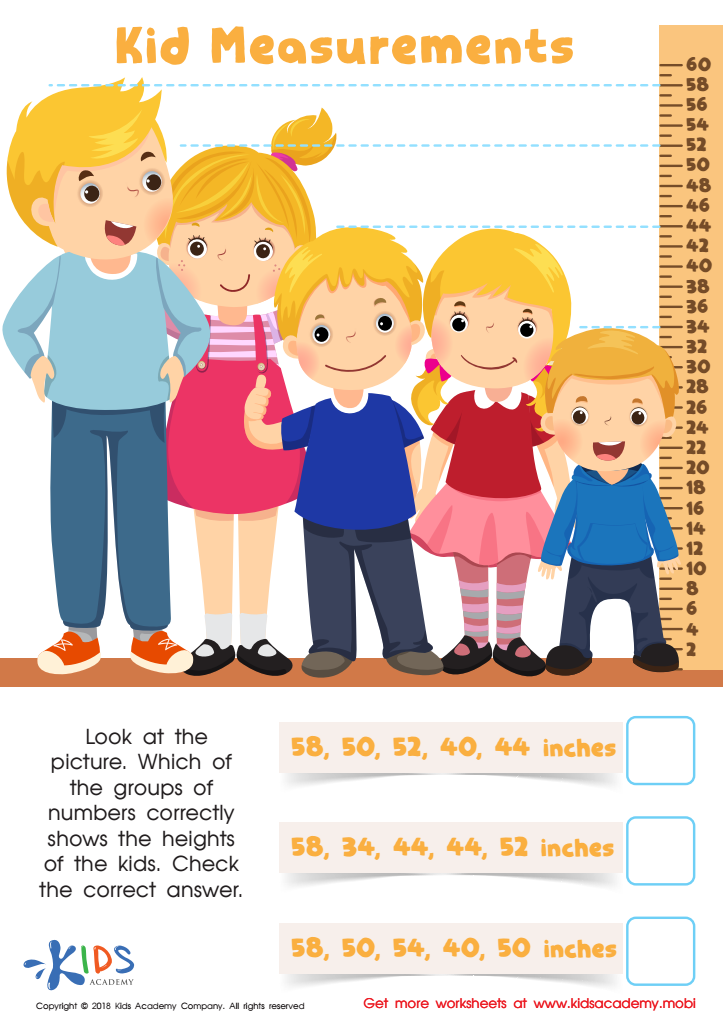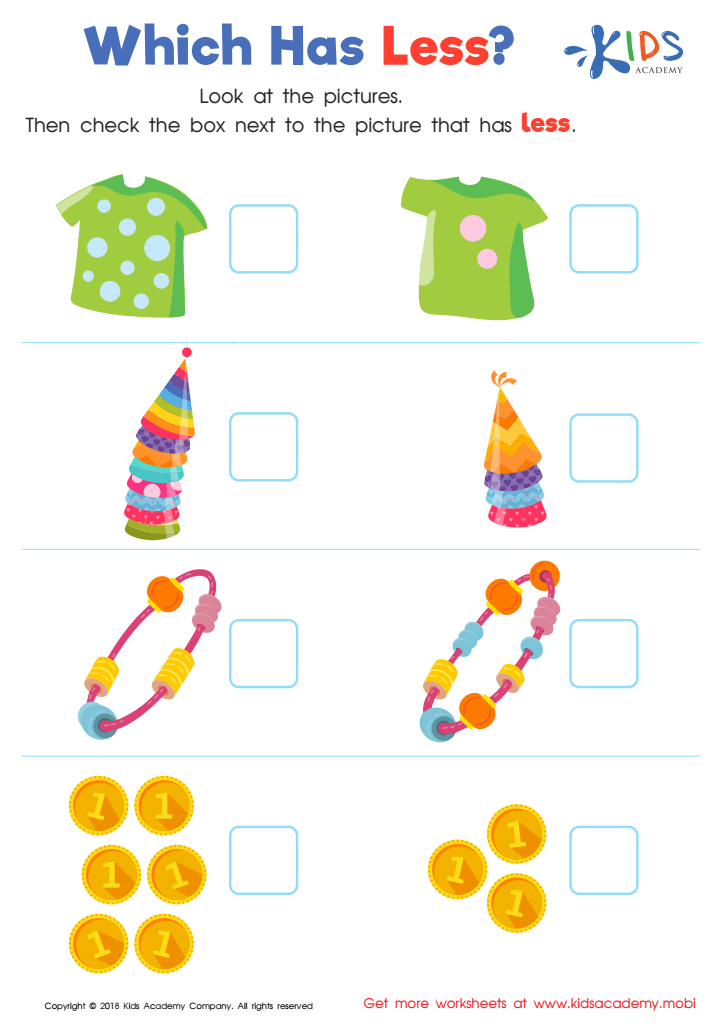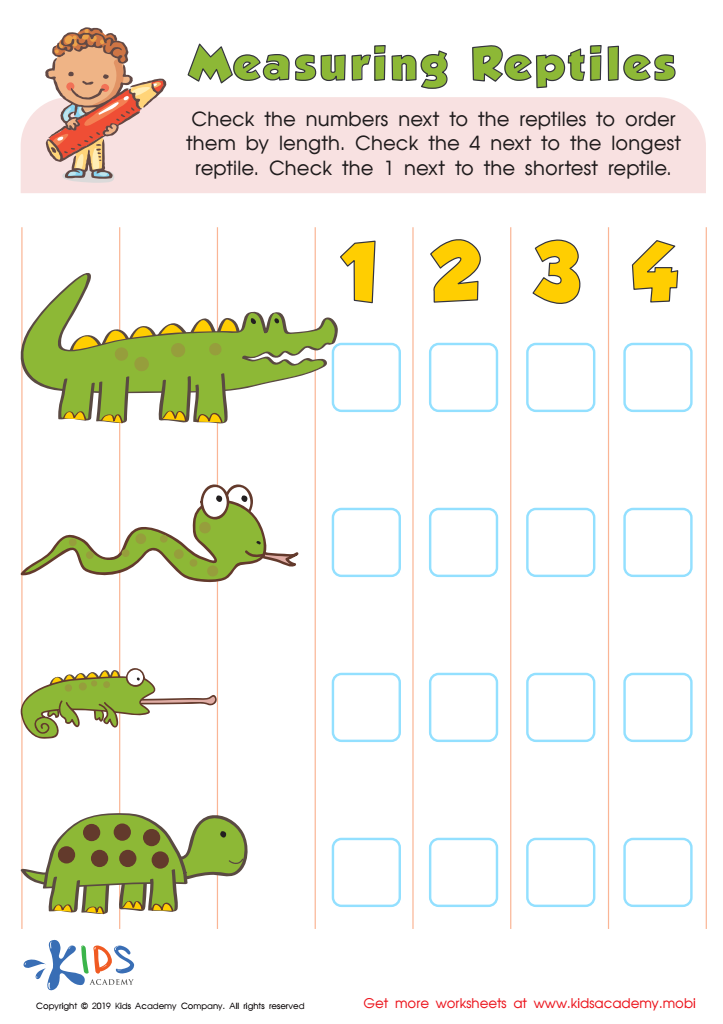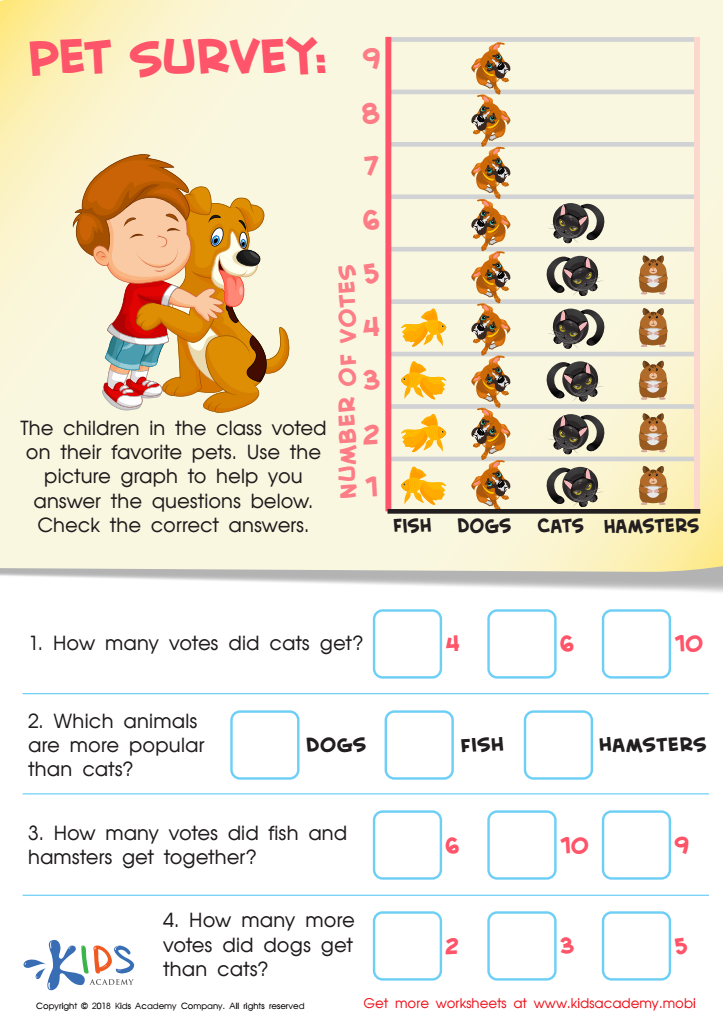Basic Math Skills Easy Measurement Worksheets for Ages 6-8
4 filtered results
-
From - To
Boost your child's basic math skills with our engaging Easy Measurement Worksheets, designed specifically for kids aged 6-8. These worksheets help young learners grasp essential measurement concepts through fun, interactive activities. With a variety of exercises, your child will explore units of measurement, practice measuring objects, and experience hands-on learning that builds confidence in math. Perfect for classroom use or at-home practice, our worksheets cater to different learning styles and provide instant feedback. Watch your child develop a strong foundation in math while enjoying the learning process! Start measuring success today with our thoughtfully crafted resources.


Kids Measurements Worksheet


Which Has Less? Worksheet


Measuring Reptiles Worksheet


Pet Survey Worksheet
Basic math skills, specifically in measurement, are crucial for children aged 6-8 as they serve as foundational elements for more complex mathematical concepts and real-life applications. Teaching children measurement helps enhance their understanding of size, distance, and volume, fostering critical thinking and problem-solving abilities. Measurement activities promote hands-on learning, which engages children and caters to various learning styles.
By mastering measurement, children develop spatial awareness, learn to compare different quantities, and start to understand concepts like volume, area, and time. Engaging in measurement also cultivates a sense of confidence, as children can see the tangible results of their mathematical understanding. Additionally, incorporating measurement into everyday activities, such as cooking or building projects, connects math to real-world experiences and shows its relevance beyond the classroom.
For teachers and parents, supporting children in these skills fosters a positive attitude towards math and lays the groundwork for more advanced studies. Furthermore, strong measurement skills are essential for success in STEM fields, aligning with today's emphasis on developing analytical and technical skills. In short, prioritizing measurement education in early grades not only prepares children for academic achievement but also equips them with practical skills necessary for daily life.
 Assign to My Students
Assign to My Students



















